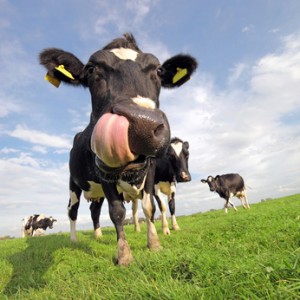Jonathan Morgan
 From its earliest days psychology has been curious about religion. Sometimes that curiosity tilts towards hostility – Freud, of course, didn’t have many good things to say about religion- “infantile neurosis” is a choice phrase. But at least four of his twenty-something books deal explicitly with the topic. So it’s safe to say he was curious. More recently, psychologists’ curiosity has tilted towards openness or outright encouragement. Part of that recent movement has involved an enormous amount of research on the impact religion has on mental health.
From its earliest days psychology has been curious about religion. Sometimes that curiosity tilts towards hostility – Freud, of course, didn’t have many good things to say about religion- “infantile neurosis” is a choice phrase. But at least four of his twenty-something books deal explicitly with the topic. So it’s safe to say he was curious. More recently, psychologists’ curiosity has tilted towards openness or outright encouragement. Part of that recent movement has involved an enormous amount of research on the impact religion has on mental health.
You’ve probably read about these studies. “Spirituality is a Key Element of Mental Health” or “New Study links belief in ‘Punitive God’ to Emotional Problems.” If not, you should check out the Punitive God one – it’s got a great picture of an angry God. But the story these studies tell isn’t as neat and clean as they make it seem.
Let’s take depression as an example. There’s ample evidence that religion has some sort of preventive or otherwise helpful effect on depression. The effect isn’t large – adopting religion won’t resolve depression – but it is generally positive. Take that, Freud! The studies vary on how they look at religion. Some say that it must be the cohesive, meaningful worldview that religion gives its members. Others think it has more to do with the community and the social support they provide. Both are probably right.
But is that really the whole picture?
All of these studies are talking about depression as though it’s a measurable, objective thing. As if we could make a formula: (____) prayer x (_____) belief = (____) depressive symptoms! Okay, I’m being too flippant about something serious, but seriously- there’s good evidence that for a majority of the world, depression as a standalone category doesn’t make sense.
Derek Summerfield, a senior lecturer at London’s Institute of Psychiatry, gives a great example of this in his recent letter to the British Medical Journal. The title of his letter is “‘Global mental health’ is an oxymoron and medical imperialism,” so you might guess his opinion. Summerfield asks whether there is such thing as depression in Cambodia. Sure, people may experience a loss of hope, fatigue, or other depressive symptoms. It’s not as though they don’t have negative emotions.
But if you label that experience depression, it implies some sort of internal, maybe biological or maybe psychological malfunction or disruption. Moreover, it implies that depression is a problem of the individual. Given the horrors of the genocide in Cambodia, it seems pretty inappropriate to label the experience a malfunction or to blame the individual. In Cambodia there’s no word for depression; instead those experiences are grouped under a term for “social suffering.” The cause isn’t inside the person – it’s in the gritty and rough social environment.
And the solution isn’t in the individual either. Summerfield talks about one guy exhibiting all the “classic” symptoms of depression. The solution? Not therapy, not anti-depressants; the solution was a cow. His community gave him a cow and the symptoms went away. The cow was the anti-depressant and painkiller. If you think depression is in the individual then you don’t think about the social setting that may be causing the problem and you don’t think about social solutions to the problem.
So what does this have to do with religion? My point is that when these studies are looking at the relationship between religion and depression, they’re treating depression as if it’s this single measurable thing. Just count the symptoms. You might say that’s fine- we aren’t in Cambodia, after all. But there’s ample evidence (here and here and here and here) that most of the world experiences depression differently and plenty of people in the US do as well. If people are giving different reasons for what they think caused depression, different symptoms of depression, and seeking different ways to treat depression, are they really experiencing depression? It’s worth noting here that there is no firm biological diagnosis for depression.
When they do that, they also treat religion as if you could break it down into component parts. Isolating the effects of prayer versus social support versus type of belief risks losing the larger picture of what religion is. What is religion? Well, the safest bet is that it’s a lot of different things to a lot of different people. A more helpful answer is that the whole of religion is greater than the sum of any of these constituent parts. Religion comprises a worldview that intimately shapes our experience. Ritual and prayer and meditation and community and pilgrimage and belief are all part of that process.
So when we study the relationship between religion and depression, we are studying two things that are both intimately connected to someone’s subjective experience. I’m not saying that makes either off-limits to science, but I am saying it makes any sort of simplified, mechanistic approach seem a bit silly. If we want to know how religion and depression relate, perhaps we should begin by seeing how they relate within people’s experience instead of applying diagnostic categories that don’t really fit. At the very least we should be wary of any formulaic advice that suggests ____ type of belief can help with ____ type of mental health. The mind’s too complex for that.
